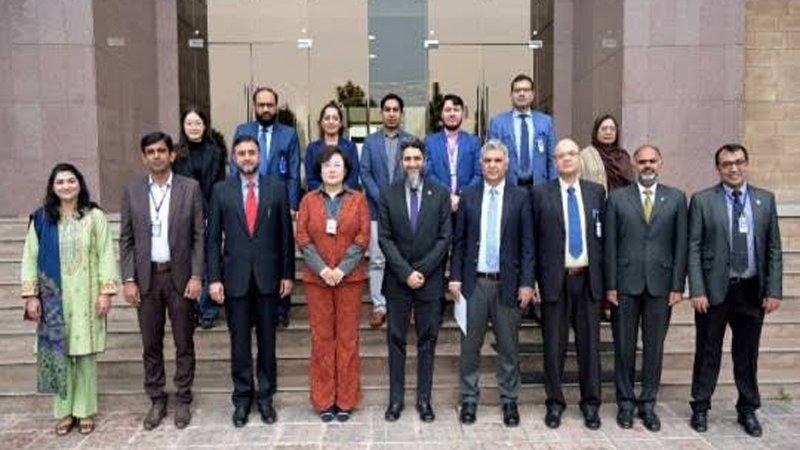Xiang Yang reported that three memorandums of understanding had been signed by NUST and several Chinese institutions in order to increase Pakistan’s agricultural productivity.
Director of the China Study Center Xiang Yang stated on Monday that the China-Pakistan Agricultural Corridor project would open the door for a new era of cooperation between the two all-weather strategic partners.
The following Agricultural Corridor project, she said in an exclusive interview, was a significant initiative and would serve as a model for other countries in the region to emulate. She said this would strengthen the idea that cooperation and partnership could result in significant achievements and benefits for all.
Xiang Yang reported that three memorandums of understanding had been signed by the National University of Sciences and Technology (NUST) and several Chinese institutions in order to increase Pakistan’s agricultural productivity.
She added that these agreements had been signed with the Qingzhou Municipal People’s Government, the Weifang National Agricultural Open Development Comprehensive Pilot Zone, and the Weifang Engineering Vocational College.
She claimed that this partnership would make it possible for China and Pakistan to exchange resources, know-how, and knowledge while collaborating on improving and advancing sustainable agricultural practises.
According to Xiang Yang, the region’s food security is at risk due to its agriculture’s low productivity, supply shortages, low returns to farmers, lack of cutting-edge technology, and untrained professionals. She continued that addressing these issues would have a big impact on people’s lives, especially in Pakistan, an agro-economic nation with a lot of potential for crop production and agricultural science research.
With a focus on precision agriculture, multi-spectral sensing of crop fields, 3D printing and scanning applications, early pathogen detection, and efficient plant disease management, she claimed that NUST was actively pursuing research in the fields of plant biotechnology, environmental sciences, agri-technology, and agribusiness.
She expressed the hope that these agreements would play a crucial role in helping to close this gap while acknowledging that contributing to sustainable agriculture resource management systems remained a significant challenge on a global scale.
The institutions would conduct research on industrial development strategy, industrial demand analysis, and development prospect forecasting, as well as on the construction of a complete agricultural industry chain system between China and Pakistan.
They would support the industrialization and deep processing of regional agricultural products in addition to the research, development, and integrated innovation of key technologies for Pakistan’s efficient and standardised crop cultivation.
They would create a three-year training programme for international students, encourage cross-border interactions, and help with job opportunities.
Along with precise crop fertilisation and technology exchange and cooperation for harvest loss reduction, they would construct an agricultural laboratory and test field in Pakistan to conduct experiments and promote advanced Chinese agricultural technology.
They would create joint applications for agricultural science projects in order to collaborate on the social and economic development of the two nations. Atta-ur-Rahman School of Applied Biosciences Principal Dr. Umer Asghar and his team, NUST Pro-Rector Academics Dr. Osman Hassan, Acting Director International Office Wang Yong, Deputy Director of Weifang National Agricultural Comprehensive District Promotion Office, Li Xiuming, Deputy Director of Weifang National Comprehensive Pilot Agriculture Zon, and China Study Centre Director Xiang Yang and her team also attended the signing of the agreements.
